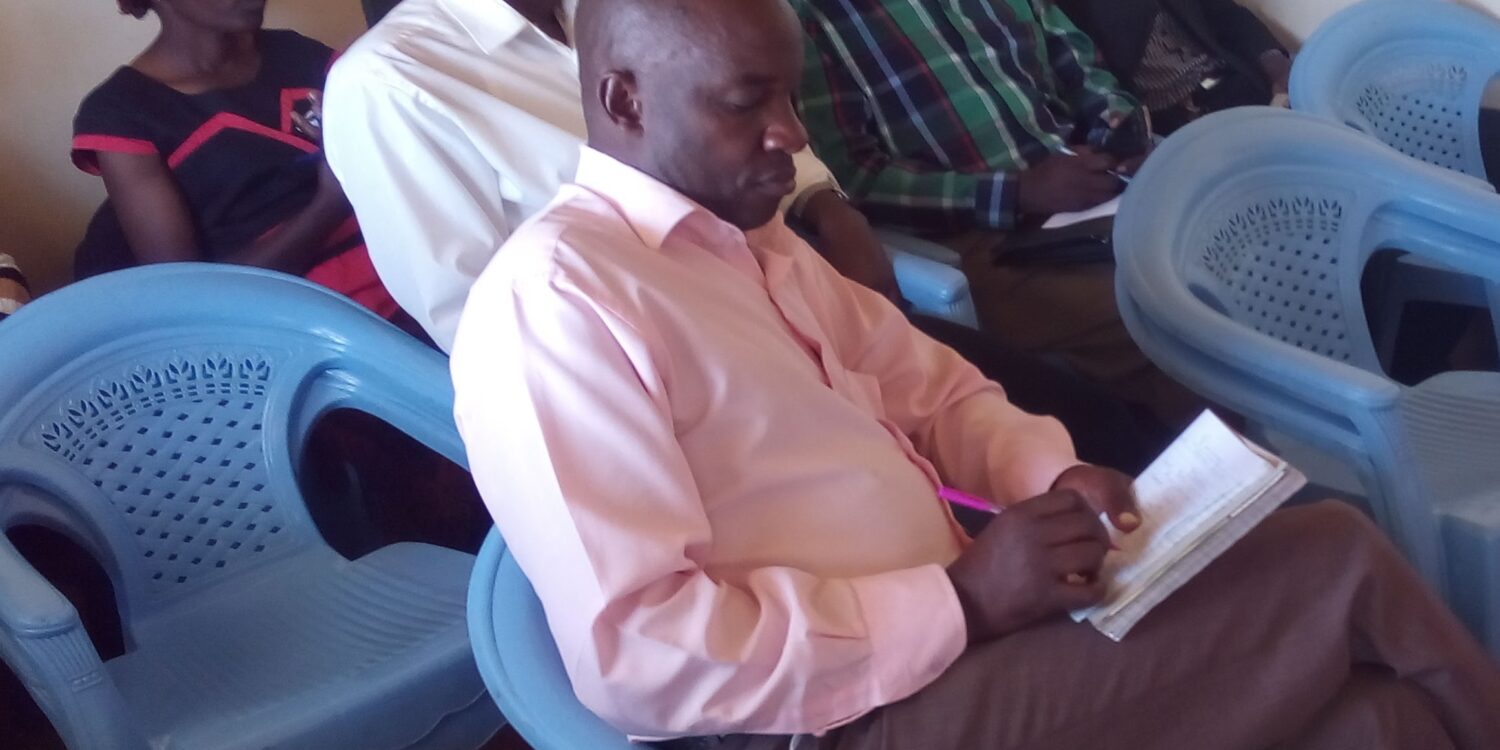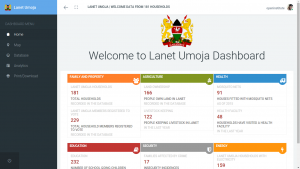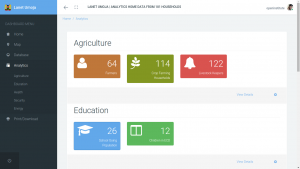Yesterday we met the administration leadership of the whole division, where Lanet Umoja is. As you may recall from a previous blog post, a division has several locations. The Dundori division has four locations – Dundori, Lanet-Umoja, Githioro and Mirironi. In the meeting, which was chaired by the Assistant County Commissioner in charge of Dundori division, Mr. Stephen Mwakwi, was attended by the chiefs of each of the locations and their assistants.
In this meeting we were able to showcase to the other chiefs and the ACC what Chief Kariuki had achieved thus far in the collection and publishing of the data. We demonstrated the mobile data collection application, the dashboard and ultimately discussed the value of data to the community. The chiefs were very excited and expressed their keenness to start the process in their own locations.
Every time the Open Institute team goes to Lanet Umoja, we are often met with a wave of enthusiasm and yesterday was nothing short of that. Over the past few months, we have been implementing a project in Lanet Umoja location with the aim of collecting data relating to the Nyumba Kumi Initiative and that helps the community track their five chosen Sustainable Development Goals.
Lanet SDG Goals:
The aim of the project has been that even after the data is collected and validated, we make it presentable in such a way that the chief and his citizens find it understandable and can useful for decision making. For this we have built a dashboard for Chief Kariuki that maps, analyses and presents the data better.
The queries are set around the five sustainable development goals that the location chose to target for the next two years and the objectives of the Nyumba Kumi Initiative.
As we continue interacting with the community members of Lanet Umoja, we continue to find that they are more animated about data that is directly relevant to their area and circumstances. They care about their security. They care about their health. They care about the quality of resources that are available to them as well as service delivery by public institutions. This was quite evident in the last meeting we had with the cluster leaders from Lanet Umoja location who came out to meet us just to ensure that data collected would be uploaded to the database and see how it would look like and how they would interpret it. It is very interesting to note that as days pass by, the members of Lanet Umoja continue to be more actively involved in the collection of data, because they continue to understand that this will directly affect how they live with each other.
At the Open Institute we learnt that Open Data initiatives have the highest impact when they use an ecosystem approach. Take, for instance, the 5 SDG goals set by the chief and the community leaders. This has attracted interest from both the community and other CSOs to work together to meet some of the goals. Start With One Kenya, a christian organization that works as volunteers in Missions to Kenya and working to support communities through provision of Clean Water, Education, Healthcare, has stepped up to help alleviate problems and diseases caused by drinking dirty water by providing clean water filters to the people of Lanet Umoja. These water filters will be donated to 7500 households in the next few weeks.
We see this as a quick win because Start with One Kenya used the data that the chief and his community collected to identify and clarify the challenge that they needed to tackle. The fact that as a result of the community’s engagement with the data, one sustainable Development Goal (number 6) is well on its way to being achieved – certainly as regard clean drinking water for every household the community will soon check that off the list.
One thing that we found encouraging is that the division leadership is very well represented by women as majority of the chiefs and assistant chiefs were women.
Going forward, we expect to venture into these other locations to implement this model in other communities. As we continue with follow up trainings of the cluster leaders, it is our desire to see all communities collect their own data and make evidence-based decisions based on the data.




















